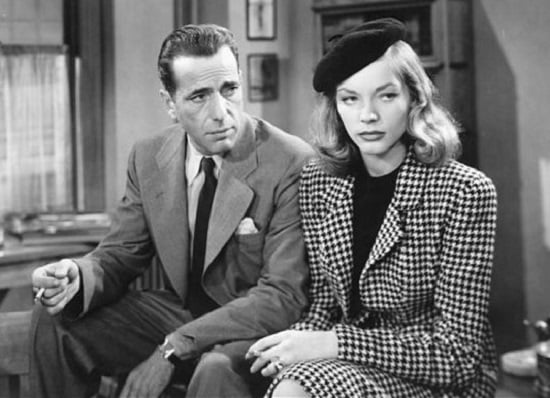After a quarter century of personal, scholastic and professional experience with relationships, I have finally discovered why none of them work—neither for me, nor for anyone with whom I have encountered.
To illustrate the point, let me tell you about my most successful relationship to date. It lasted for 36 hours.
We met at a party of mutual friends, and quickly fell into a “Bubble of Wow,” together. It encapsulated us in a solitary and intense kind of intimacy for a while—even in the midst of the fray and party-goers—until we finally found a quieter space.
We then spent most of the next day and a half together. It was one of those, “where have you been all my life” kind of things.
When we parted on an early morning a day and a half later—after lots more “Wow”—I could feel that something was shifting ever-so-slightly in him, and for the next three days he didn’t call or reach out in any way.
I didn’t either.
I sensed that time was needed for whatever had come up between us. When I finally sent a short text (“I’d love to see you”), he texted back simply that he could not—that he was, in his words, “out of his integrity.” I never saw him again.
So after 25 years of intimacy and working with couples why is this 36-hour, seemingly failed connection, the most successful relationship I have ever encountered?
It’s successful because I didn’t feel blame or outrage that he “ditched me.” I just heard him: he was out of his integrity. I don’t want my friends or loved ones to feel out of their integrity.
Hell, if my kid told me she felt out of her integrity and was changing things in her life to rectify it I would applaud her! I might take her out for sushi to celebrate. (her favorite) Why would I want someone whom I care about to compromise himself?
I want to note that this wasn’t just an intellectual understanding and that is why, for me, it was successful.
Had I tried to talk myself into being happy about it (read: suppressed smoldering rage at being rejected), well, it would hardly have been a success story. The beauty and testament of it was that my actual, visceral, uncontrived response at not seeing him again—a man I liked and wanted very much—was joyful.
When I realized that my desire for him to be happy was stronger than my own personal disappointment, I knew that I had turned a corner.
So let’s take a hard look at why relationships never seem to pan out. I mean, really—have you ever seen a functional relationship? There are some that seem to be functional, or possibly even very good, but we never really get to know too much about them. Then later, we discover the seedy underbelly—often when the couple splits—and are disillusioned all over again.
This one had domestic violence in it. That one has been a sexless marriage for the past 10 years. This one had one partner lying and cheating on the other. That one was more of a business arrangement, waiting patiently until the kids were out of the house. The list goes on and on.
Further, the relationships that seem truly mature are ones that we know almost nothing about: Adaya and Mukti, Barak and Michelle, Katie and Stephen, Will and Jada—never-mind the myriad hollywood couples that are constantly appearing as perfect and happy in the media.
Perhaps they are the exceptions, or perhaps they are just a whole lot better at hiding what isn’t perfect about them. The point is that I have never had a direct experience of what most of us would call a deeply mature, intimate relationship that lasts over time, and no one I have ever met has either.
It seems, quite frankly, that relationships don’t work. And as a long-term researcher, impassioned by the mystery of it, I think I have discovered why.
Relationships are based on the fallacy that I exist, you exist, and that my happiness, connection and fulfillment can be met by something from the outside—that there even is an outside.
That might sound esoteric, but stick with me.
When we look at our experience we can’t actually find a “person,” or even a “self.” In any experience we can find what we call color, the sound of a voice, the experience of a touch, etc. Without a belief in a self, other or time—which are all just thoughts and images in the mind and have no substance—all we have is this moment.
No past, no future, no lover, no “relationship,” and that—to spoil the ending—is the only place where intimacy can reside.
The truth is that we are all living in fantasy-land and we build our relationships on that ground. What it means is that as long as you have an ego your relationships will fail.
So at this point you might be thinking, “OK that’s pretty depressing. I guess I have to become a celibate hermit or else resign myself to having painful, non-functional relationships.”
Herein lies the solution: Recognize that relationships are not primarily based on love, they are based on fear. Once we know this, we can work directly with the fear itself instead of on the other person or “the relationship.” We may discover that relating with another is not about our pleasure or comfort at all (although that’s sometimes a by-product), but about discarding every confusion we are still trapped in.
Byron Katie said, “Egos don’t love, they want something.”
When ego is operating—which let’s face it is pretty much 100% of the time—then no matter how good we try to be, how loving, selfless, kind or noble, we in fact want something.
We might simply want their approval, or we might want financial security, someone to stand by us, to be seen in a particular way, their validation, to avoid responsibility, or a long list of other things.
There is nothing wrong or bad about wanting something from someone. In fact, without the thought that we shouldn’t want something in a relationship, we can simply get honest and admit that we do! We might also notice that our partners do too. So, if you think that your partner is manipulating you to get what they want, it’s probably because they are.
They are not bad, just like we are not bad. They are motivated by fear, just as we are.
So how does fear operate? It motivate us to leave love in order to stay “in control.”
It whispers things in our ears like:
“You’ll be alone.”
“You won’t be able to support yourself.”
“You’ll be homeless.”
“You’ll become dependent.”
“They will manipulate you if you show your love too much.”
“They’ll use it against you later.”
“You need their love and affection.”
“You’ll never be happy again.”
What happens when we believe such thoughts is, ironically, that in the name of love we leave it. We begin to manipulate, withhold, and lie to our partners in order to get what we want or avoid losing something.
Here’s an example:
When I didn’t hear from “Wow-Bubble” Guy I could have pretended that I was no longer interested, told him that he was out of integrity by not talking more directly with me (especially now that I’ve discovered that his being in integrity is a sore spot for him), cajoled him into viewing our connection as an important relationship and insinuated that he was just scared.
I could have threatened to withdraw my appreciation of him or even to see him again—or used any of other the tactics that I have in my past relationships to try to get what I want.
That is not love.
That is reaction based on fear—fear of what will happen and/or what his actions mean about me.
OK, so my encounter was just a day and a half, but what happens when our fearful thoughts prey on a longer term relationship, one in which we have far more invested in? What happens when we watch as our blissful intimacies predictably begin to fail?
Most of us withdraw, manipulate, become fearful, jealous, go into denial, blame ourselves, become controlling or lash out. Meanwhile our partner is doing some version of the same thing. Even though we may be “in relationship” over time we are way out at sea, alone and often in pain.
At some point we face the ugly dilemma of whether it would cause us less pain to leave the relationship or to endure it, even while recognizing that neither of those prongs will bring peace because neither gives us the intimacy, connection, or comfort we seek.
So brace yourselves. Here’s what love looks like.
Love is feeling delight when your partner ditches you. Love is when you can’t find a partner and you enjoy how happy others are to have found one themselves—and all that’s beautiful about sleeping alone. Love is leaving someone you know you shouldn’t be with rather than holding them hostage to your fantasy or needs. Love is when you love and appreciate another who apparently doesn’t appreciate you back, or maybe even notice you.
I sometimes attend a drop-in group mostly to bask in the presence of a beautiful man who’s often there and apparently has no interest in me. I get to see him, adore him, hear his brilliance and witness his huge heart. I
Source: via Jenna on Pinterestsometimes even get to hug and smell him. Pure love, without requirements or agenda.
Here’s the secret and the power of it: If you want a good relationship then have one. Take it, don’t wait for permission. If you want love then be love and you will never be separated from intimacy and connection again.
What does that look like? It means caring for the other as much as yourself, especially when he or she doesn’t do what you want. It means deeply respecting what they want for themselves, which may or may not mean being near you. It means that if they say “don’t call me,” then don’t, and keep your heart wide open. It means if they say, “I need you,” and it’s not right for you, you say “no,” and keep your heart wide open.
So, I know what some of you are thinking: “If I let go of trying to get what I want in relationship then I will never have it.” But why would unilaterally staying open to someone—loving them and setting them totally free from your own expectations and judgments—make a positive, functional or long term relationship any less likely?
I think it would make it a lot more likely actually, and in the meantime how much fun is it to adore everyone like your own, sweet lover, whether they know it or not?
I will leave you with a quote. It will be a blessing to you every time your relationships fail—as they predictably will—while you quietly become love itself:
“You are your only hope, because we’re not changing until you do. Our job is to keep coming at you, as hard as we can, with everything that angers, upsets, or repulses you, until you understand. We love you that much, whether we’re aware of it or not. The whole world is about you.” ~ Byron Katie
Like elephant love on Facebook.
Ed: Dana Gornall
~
 Share on bsky
Share on bsky


Read 91 comments and reply